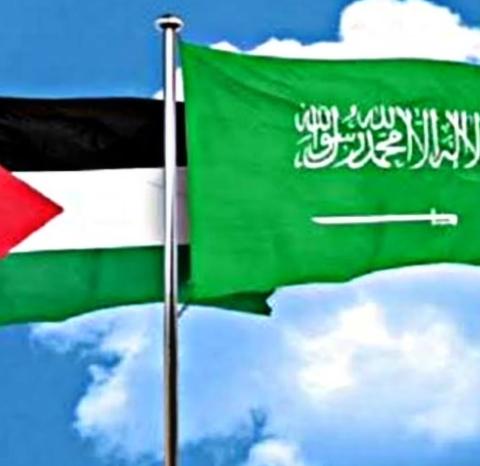
Alkarama condemns the continued detention by the Saudi authorities of people who have condemned human rights violations in the occupied Palestinian territories and calls for their immediate release.
Alkarama notes that the Saudi government has for decades practiced a policy of repression and restrictions against all peaceful voices of the opposition, and stresses that it is still difficult to understand the increasing frequency of repression against any voice that opposes the Israeli occupation in Palestine or supports the right of the Palestinian people to independence, self-determination and resistance.
Despite the reforms in the area of individual freedoms, adopted by Saudi Crown Prince Mohammed bin Salman since he took effective control of the country, there has been no improvement in the human rights situation in general. As the violations have escalated, the list of prohibitions has expanded to include all forms of solidarity with the Palestinian people, despite the violent war waged by the occupation for about six months in the Gaza Strip, which has resulted in enormous destruction and caused more than 100,000 deaths and injuries, most of them children and women.
Over the years, Alkarama has documented numerous arrests by the Saudi authorities of personalities who have defended the rights of the Palestinian people in the face of the occupation, whether they are Saudi nationals or other Arab nationalities.
Examples of cases
Palestinian-born Jordanian journalist Abdulrahman Farhana, for example, is among those who continue to be oppressed and persecuted because of their sympathy for the Palestinian resistance. Arrested on 22 February 2019, Farhana was forcibly disappeared until 15 June 2019. In 2020, due to the COVID-19 pandemic, he was placed in isolation for six months. On 8 March 2020, Farhana appeared before the Saudi Public Prosecutor's Office on charges of "belonging to a terrorist entity". His first hearing was held on 10 March 2020 before the Saudi Specialized Criminal Court, which sentenced him on 8 August 2021 to 19 years' imprisonment. He is currently being held in Dammam prison, according to several human rights sources.
On 18 November 2022, the UN Working Group on Arbitrary Detention adopted Opinion No. 84/2022 in which it concluded that Abdulrahman Farhana's detention was arbitrary. Despite his immediate release, he continues to be detained.
In a similar case, in April 2019, state security investigations arrested Mohammed Saleh Al Khudari, head of relations with the Palestinian resistance movement Hamas in Saudi Arabia, and his son. The Saudi Criminal Court sentenced him in August 2021 to 15 years in prison for supporting Hamas. Other sentences were handed down to 69 Jordanian and Palestinian nationals, most of whom were sentenced to 22 years in prison.
While Al Khudari was released in October 2022, dozens of detainees remain behind bars, including Saudi academics who had openly expressed their support for the Palestinian cause and called on Arab governments to intervene to end the occupation. Among them: Salman Alodah, Awad Al-Qarni, Abdulaziz Al-Tarifi, Nasser Al Omar, Ali Al Omari, Muhammad Musa Al-Sharif, Ali Badahdah, Adel Banameh, Bader Al Mashari, Safar Al Hawali, Ibrahim Al-Harthy, Ibrahim Al Dawish and others.
"The restrictions imposed by Arab governments in general on activists supporting the rights of the Palestinian people seem to have paid off in creating a state of fear. It is remarkable that despite the horrific massacres perpetrated during Israel's ongoing war on Gaza, most Arab capitals in general have not experienced a solidarity movement as in the past," said lawyer Rachid Mesli, director of Alkarama.
Mesli called for the release of prisoners of conscience, including the many detainees in Saudi prisons and in particular all those who have merely exercised their right to express solidarity with the Palestinian people and stressed their right to self-determination and self-defence.
